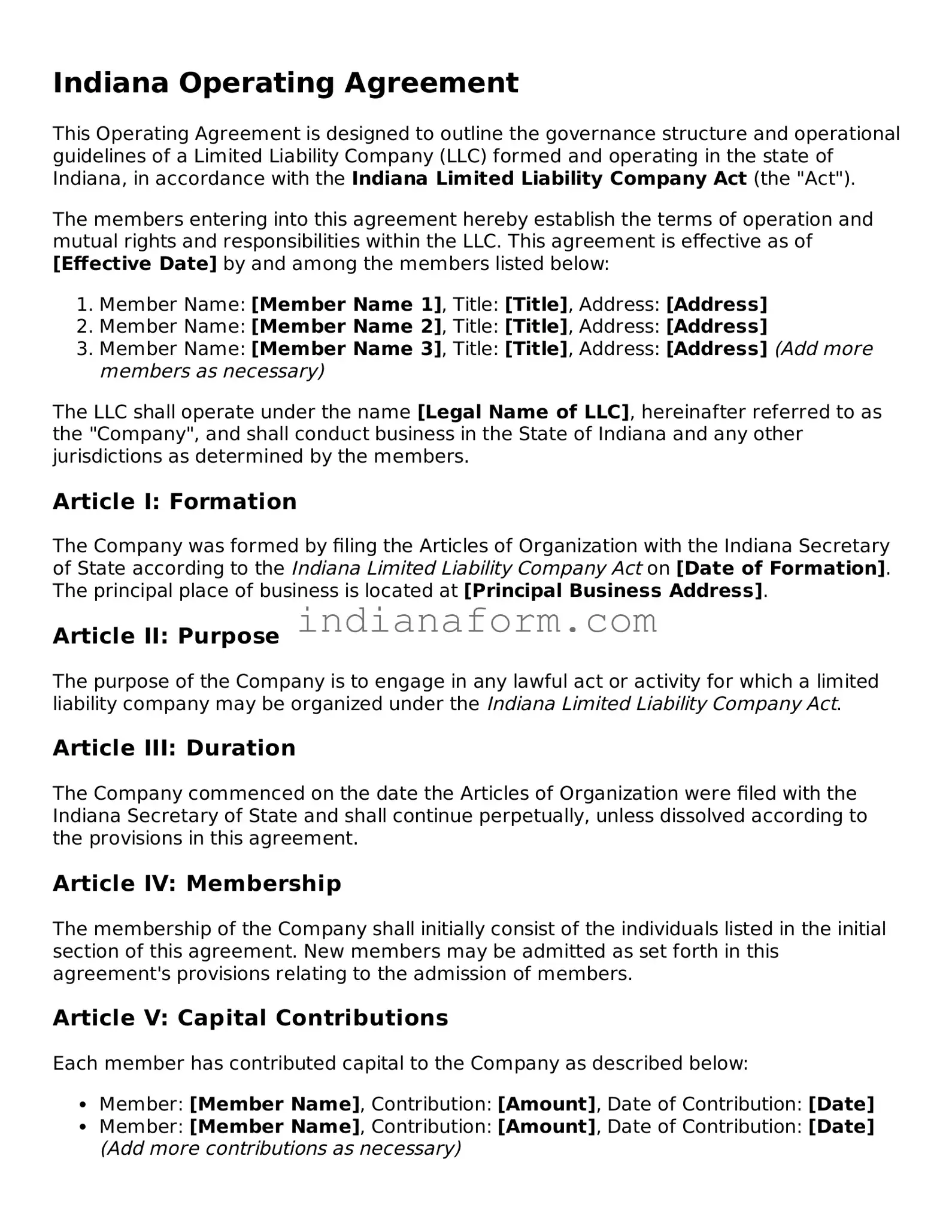Indiana Operating Agreement
This Operating Agreement is designed to outline the governance structure and operational guidelines of a Limited Liability Company (LLC) formed and operating in the state of Indiana, in accordance with the Indiana Limited Liability Company Act (the "Act").
The members entering into this agreement hereby establish the terms of operation and mutual rights and responsibilities within the LLC. This agreement is effective as of [Effective Date] by and among the members listed below:
- Member Name: [Member Name 1], Title: [Title], Address: [Address]
- Member Name: [Member Name 2], Title: [Title], Address: [Address]
- Member Name: [Member Name 3], Title: [Title], Address: [Address] (Add more members as necessary)
The LLC shall operate under the name [Legal Name of LLC], hereinafter referred to as the "Company", and shall conduct business in the State of Indiana and any other jurisdictions as determined by the members.
Article I: Formation
The Company was formed by filing the Articles of Organization with the Indiana Secretary of State according to the Indiana Limited Liability Company Act on [Date of Formation]. The principal place of business is located at [Principal Business Address].
Article II: Purpose
The purpose of the Company is to engage in any lawful act or activity for which a limited liability company may be organized under the Indiana Limited Liability Company Act.
Article III: Duration
The Company commenced on the date the Articles of Organization were filed with the Indiana Secretary of State and shall continue perpetually, unless dissolved according to the provisions in this agreement.
Article IV: Membership
The membership of the Company shall initially consist of the individuals listed in the initial section of this agreement. New members may be admitted as set forth in this agreement's provisions relating to the admission of members.
Article V: Capital Contributions
Each member has contributed capital to the Company as described below:
- Member: [Member Name], Contribution: [Amount], Date of Contribution: [Date]
- Member: [Member Name], Contribution: [Amount], Date of Contribution: [Date] (Add more contributions as necessary)
Members may agree to additional contributions in proportion to their existing ownership percentages or as otherwise agreed upon.
Article VI: Distribution and Allocation
The Company's profits and losses shall be allocated, and distributions made to the members in accordance with their respective percentage interests in the Company, as described in this agreement.
Article VII: Management
The Company is managed by its members. Decisions shall be made by majority vote unless this agreement stipulates a higher requirement for specific decisions.
Article VIII: Dissolution
The Company may be dissolved upon the agreement of [Specific Percentage] of the members. Upon dissolution, the assets of the Company shall be distributed according to the members' percentage interests after settling any debts.
Article IX: Amendments
This Operating Agreement can be amended with the consent of at least [Specific Percentage] of the members voting in accordance with their percentage interests in the Company.
In witness whereof, the members have executed this Operating Agreement as of the date first above written.
Member Signature: _____________________ Date: ____________
Member Signature: _____________________ Date: ____________ (Add more signatures as necessary)

